How Does Pay Per Click Marketing Work?
Picture this: you’re browsing the internet, looking for information, and suddenly you come across an ad that perfectly matches your interests. Ever wondered how those ads magically appear? Well, wonder no more! In this article, we’ll unravel the mystery and answer the burning question, “How does pay per click marketing work?”
Pay per click marketing, also known as PPC, is a clever advertising model used by businesses to drive targeted traffic to their websites. It’s all about placing ads strategically across the web and paying only when someone clicks on them. It’s like having a personalized Internet billboard that only charges you when people actually engage with it.
Now, you might be wondering, “But how does it all happen?” It’s simple! Advertisers bid for ad placement in search engine results or on relevant websites. When users search for certain keywords or visit specific pages, these ads are displayed, capturing their attention and tempting them to click. And that’s where the magic begins!
So, the next time you’re roaming the web and stumble upon an ad that seems to know exactly what you’re interested in, remember that it’s all thanks to the wonders of pay per click marketing. Curious to learn more? Keep reading to discover the inner workings of this fascinating advertising strategy!
Curious about how pay per click (PPC) marketing works? Let’s break it down in simple terms. Firstly, advertisers bid on keywords relevant to their target audience. When a user searches for those keywords, the highest bidder’s ad appears. The advertiser only pays when someone clicks on their ad. This allows businesses to reach their target audience effectively and track their return on investment. Implementing a well-planned PPC strategy can boost traffic and conversions for your website.
How Does Pay Per Click Marketing Work?
Pay Per Click (PPC) marketing is a popular and effective digital advertising model that allows businesses to place paid ads on search engine results pages (SERPs) and other online platforms. This article will provide a comprehensive overview of how PPC marketing works and its benefits for businesses. From understanding the basics of PPC to exploring different advertising platforms and campaign strategies, you’ll gain valuable insights into harnessing the power of PPC to drive targeted traffic to your website and achieve your marketing goals.
1. Understanding the Basics of PPC Marketing
In the world of digital advertising, PPC marketing stands out as a cost-effective and results-oriented approach. It revolves around advertisers paying a fee each time their ads are clicked by users. The most common platform for PPC is search engines like Google, where advertisers bid on keywords related to their products or services. When users search for these keywords, the ads appear in the sponsored section of the search engine results.
One of the key elements of PPC marketing is the bidding process. Advertisers set a maximum bid they are willing to pay for a click on their ad. The auction takes place every time a user initiates a search, and the search engine algorithms determine which ads will appear based on factors like relevance and bid amount. The goal is to ensure that ads are shown to users most likely to be interested in the advertiser’s offerings.
2. Choosing the Right PPC Advertising Platform
While Google Ads is the most popular PPC advertising platform, several other platforms offer great opportunities for businesses to reach their target audience. Platforms like Bing Ads, Facebook Ads, and LinkedIn Ads cater to different demographics and offer unique targeting options. Before diving into PPC marketing, it’s crucial to research and select the platform that aligns with your target audience and marketing objectives.
Google Ads, with its dominant market share, provides access to a vast audience. It allows advertisers to create text ads, display ads, shopping ads, and video ads to reach users across the Google Search Network and the Google Display Network. Google Ads offers a comprehensive set of tools and analytics to monitor your campaigns, refine your targeting, and maximize your return on investment (ROI).
3. Creating a Successful PPC Campaign
To create a successful PPC campaign, you need to develop a solid strategy and implement best practices. Let’s explore the essential steps involved in setting up and managing a PPC campaign:
Step 1: Define Your Goals and Target Audience
Before starting a PPC campaign, it’s vital to clearly define your marketing goals. Whether you aim to increase website traffic, generate leads, or boost sales, having specific goals will shape your campaign strategies. Additionally, identifying your target audience will help in selecting relevant keywords and crafting compelling ad copy.
Step 2: Keyword Research and Selection
Keyword research is a critical aspect of PPC marketing. It involves identifying the keywords your target audience is using to search for products or services similar to yours. Tools like Google Keyword Planner and SEMrush can assist in finding relevant keywords with high search volumes and manageable competition. Building a comprehensive list of keywords will enable you to optimize your campaign for maximum reach and relevancy.
Step 3: Crafting Compelling Ad Copy
Writing engaging and persuasive ad copy is crucial to attract clicks and drive conversions. Your ads should clearly communicate the benefits of your products or services and include a strong call-to-action (CTA). Tailor your messaging to resonate with your target audience and differentiate yourself from competitors. Regularly testing and optimizing your ad copy can help improve its performance and drive better results.
Step 4: Setting Up Landing Pages
Landing pages play a crucial role in converting clicks into sales or leads. Ensure that your landing pages are designed for a seamless user experience and align with your ad copy. Optimize them for fast loading speeds, mobile responsiveness, and clear calls-to-action. A well-designed landing page can significantly improve your campaign’s conversion rates.
Additional Topics:
The Benefits of PPC Marketing
PPC vs. Organic Search: Which is Better?
Top Tips for Optimizing Your PPC Campaigns
Key Takeaways: How Does Pay Per Click Marketing Work?
- Pay per click marketing is an online advertising model where advertisers pay a fee each time their ad is clicked.
- These ads are displayed on search engine results pages and websites, targeting specific keywords relevant to the advertiser’s product or service.
- Advertisers bid on keywords, determining the cost per click and ad placement.
- PPC campaigns require effective keyword research and targeting to reach the right audience.
- By monitoring and optimizing campaigns, advertisers can maximize their return on investment and increase conversions.
Frequently Asked Questions
How does Pay Per Click Marketing work?
Pay Per Click (PPC) marketing is a digital advertising model where advertisers pay a fee each time their ad is clicked. It works by displaying ads on search engine results pages (SERPs) or other websites, and advertisers only pay when someone clicks on their ad.
Search engines like Google and Bing offer PPC advertising platforms, where advertisers bid on keywords relevant to their target audience. When a user searches for those keywords, the search engine runs an auction and determines which ads will be displayed. The ads are typically labeled as “sponsored” or “ad” to differentiate them from organic search results.
How can Pay Per Click campaigns benefit my business?
PPC campaigns offer several benefits for businesses. Firstly, it allows you to reach a highly targeted audience. With PPC, you can choose specific keywords or demographics to target, ensuring that your ads are shown to the right people at the right time.
Secondly, PPC provides instant visibility. Unlike organic search engine optimization (SEO), which can take time to show results, PPC ads appear at the top of search engine results instantly after launching your campaign. This increased visibility can drive traffic to your website and boost brand awareness.
What are the main elements of a Pay Per Click campaign?
A Pay Per Click campaign consists of various key elements. The first is keyword research, which involves identifying the relevant keywords related to your business and target audience. These keywords will determine when your ads are displayed.
The second element is creating compelling ad copy. Your ads should be persuasive and contain a strong call-to-action (CTA) to encourage users to click on them. Effective ad copy can increase the click-through rate (CTR) of your ads and lead to conversions.
How do search engines determine the position of PPC ads?
Search engines use a bidding system and a Quality Score algorithm to determine the position of PPC ads. Advertisers bid on keywords, specifying the maximum amount they are willing to pay for a click. However, the highest bidder does not always secure the top position.
Search engines also take into account the Quality Score of each ad, which is determined by factors like ad relevance, click-through rate, and landing page experience. Ads with higher Quality Scores may be placed higher on the SERPs, even if their bid is lower than competitors.
What is the difference between PPC and organic search results?
The main difference between PPC and organic search results is the way they are displayed on search engine results pages. PPC ads are paid placements and are labeled as “sponsored” or “ad,” while organic search results are unpaid and determined by a search engine’s algorithm.
Another difference is the time it takes to achieve visibility. PPC ads provide instant visibility, appearing at the top of the search results as soon as the campaign is launched. Organic search results, on the other hand, rely on SEO strategies and may take time to climb the rankings and gain visibility.
Pay-Per-Click-Advertising Explained For Beginners
Summary
So, let’s sum it all up! Pay per click marketing is a way for businesses to advertise online. When someone clicks on an ad, the business pays a small fee. This helps businesses reach more customers and increase their online presence.
With pay per click marketing, businesses can choose where and when their ads will appear. They can also set a budget to control how much they spend. By using keywords and targeting specific audiences, businesses can make sure their ads reach the right people. So next time you see an ad while searching or browsing the internet, remember that it’s all part of pay per click marketing!

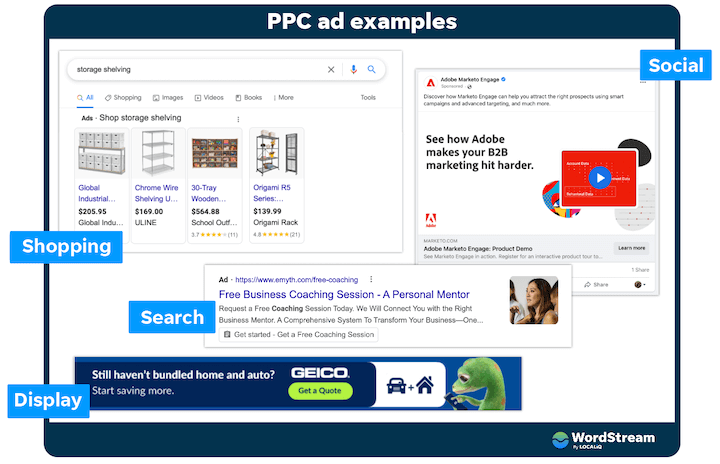
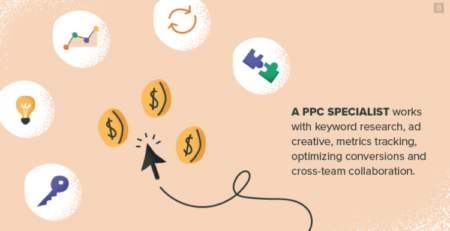
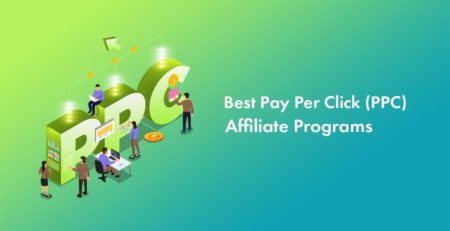

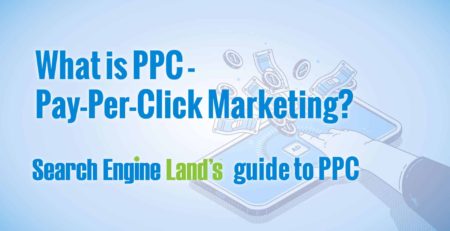
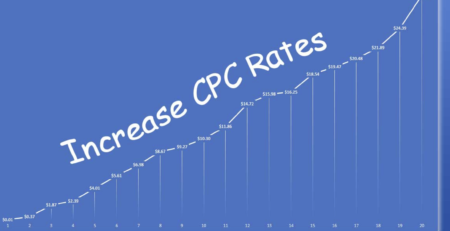
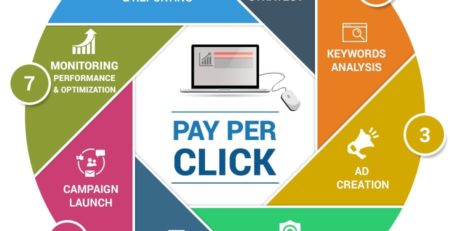
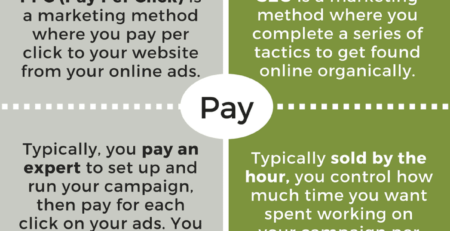
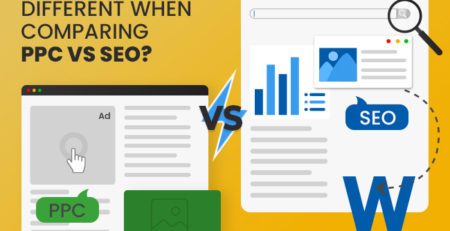
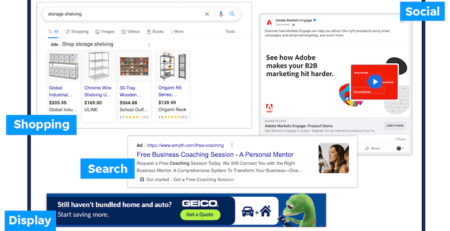
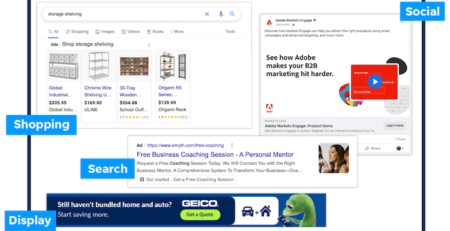
Leave a Reply